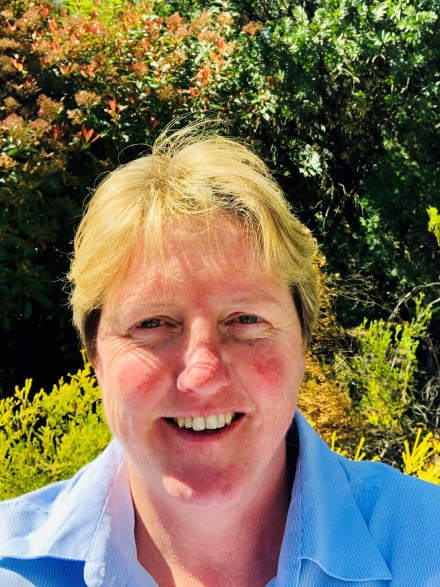Tracey Potts

Contacts
Contact email:tracey.potts@anu.edu.au
PhD Candidate, Fenner School of Environment & Society
College of Science
Tracey’s research aims to understand some of the psycho-social and ecological phenomena that enable or impede the uptake of natural resource management extension efforts that aim to catalyse practice change. Significant investments are made in extension services in the NRM sector by multiple agencies and industry bodies aimed at affecting practice change, and the uptake of those opportunities, and their subsequent conversion to improved practices, is limited.
Tracey’s thesis will attempt to elucidate which psycho-social phenomena reinforce highly resilient unsustainable practice traps, which ecological phenomena interact with those social phenomena to mutually reinforce the undesirable state and which factors promote transformative capacity. Improved understanding of the factors listed above may enable input into the design of NRM extension programs.
Tracey has extensive experience in natural resource management with nearly thirty years of working in conservation management, rural and social development, private land conservation and Landcare in South Africa, Zimbabwe, New Zealand, and Australia. Tracey’s passions lie in developing novel approaches to the challenges we experience in the space where people and the environment meet. She enjoys the opportunities, complexity and challenges associated with working in multi-stakeholder environments and is committed to effecting lasting impacts on resilient ecosystems and communities. Tracey holds a master’s degree from Rhodes University, South Africa and is currently working part-time towards a PhD at ANU’s Fenner School.
As Business Partner Customer Experience (CX) at NSW Local land Services (LLS), Tracey’s role aims to increase engagement and customer sentiment and improve how our customers experience the delivery of the LLS service offering in a way that leads to increased adoption of improved agricultural and NRM practices. It also aims to improve the ease, simplicity, and completion rates of key transactional interactions such as Rates, Annual Return of Land and Stock and land administration. CX considers the various channels of engagement and modes of delivery, including our communications, in-person, over-the-phone, form-based and online interactions alongside learning styles, customer preferences and customer values and aspirations.
Research interests
Social-ecological systems, social constructs, climate change adaptation in agriculture and NRM, behavioural insights.
Groups
- Student, Agriculture, food and nutritional security
- Student, Risk, vulnerability and resilience
Updated: 27 March 2025/Responsible Officer: College of Science/Page Contact: https://iceds.anu.edu.au/contact







